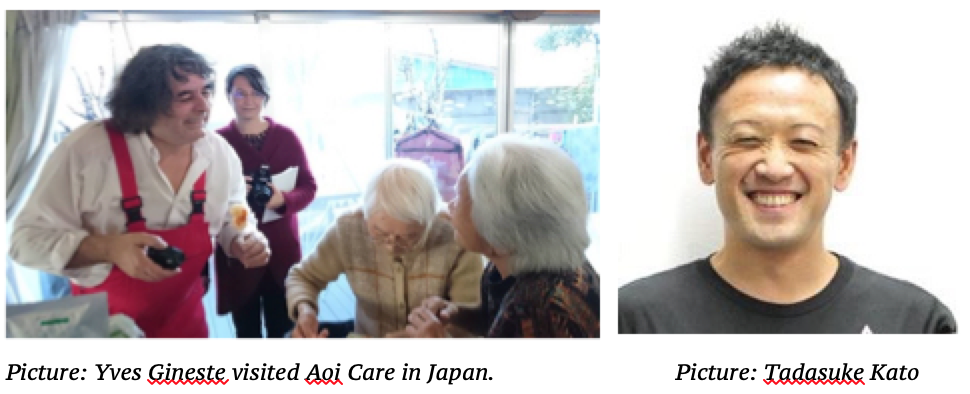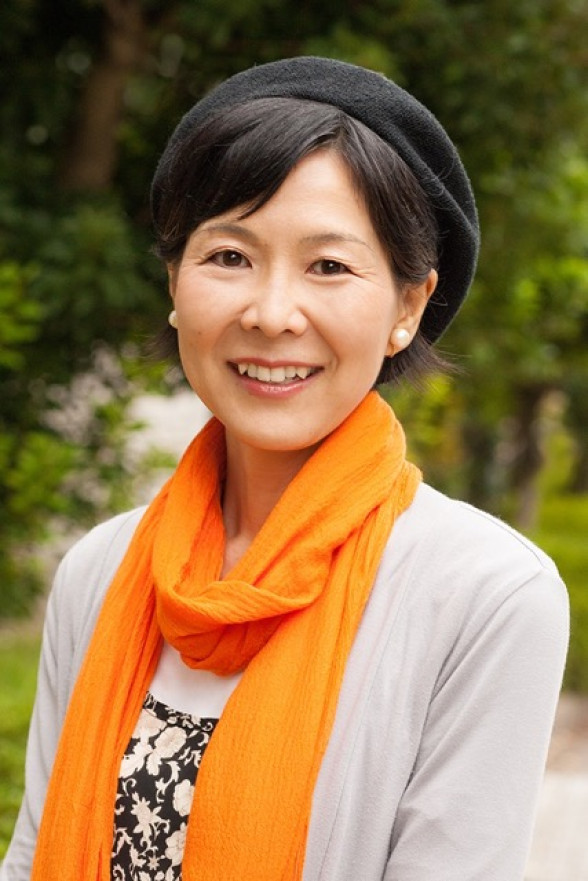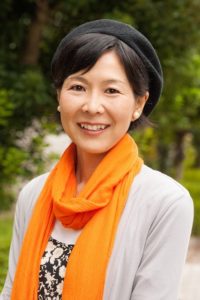The huge misunderstanding is that the person with dementia has no understanding.
By Naomi Higuchi
Discussion about the end of life medical approach and the care.
Theme: Who should make decisions at the final stage of life and how?
From the perspective of the person living with Lewy body dementia.” yomi Dr. Yomiuri Shimbun Holdings, 15.12.2016. Available in Japanese here here.
DAI is delighted to share this article about dementia and end of life issues, from the perspectives of Naomi Higuchi, a person living with lewy body dementia in Japan.
"Who should make decisions about end-of-life care when we are diagnosed with dementia? My answer is clear that it is the person himself or herself. Then, when should it be done? Probably before the person loses the ability to do so.
It is the only way to relieve those around the person, including loved ones and healthcare professionals, from the emotional conflict that may last even after the person’s death.
It is difficult for anybody to contemplate the loss of their loved ones objectively or calmly. No matter what they have chosen, the feeling of doubt will remain whether one has made right decision. The more medicine develops, the more this feeling will increase.
The evaluation of the decision between too much and not enough can only be made by the person who lives the life.
In terms of the end of life care of people with dementia, there is a strong negative image that those people are “kept alive without any understanding of what is going on.” But is it really true? It may be that people simply assume that persons with dementia do not understand anything, and therefore they do not even think of asking them what they want.
My grandmother taught me: It is natural that people get old and die
My grandmother had been bedridden at home for a long time. Even when we were told that “she cannot recognize her family anymore”, she still smiled at me and said, “Hi, Naomi…”.
However, eventually such responses decreased, she lost words and facial expressions, becoming something like a stone. No one could tell whether she still had emotions or not. This situation made me feel something similar to grief at her death.
However, one day when my mother was with her, my grandmother suddenly opened her mouth and said to my mother, “I am sorry for being a burden to you. It won’t last long, so please forgive me.” Her lack of responsiveness did not mean that she did not understand anything.
Every time when I visited my grandmother, I let my little children hold her hands and talk to her. Although we could not see her response anymore, I believed that she still felt something inside her with our visits.
She became a great teacher to my children by showing them how people as human beings age, suffer from illness and become increasingly vulnerable towards the end of life.
My grandmother passed away slowly and calmly, surrounded by her loved ones at home. It seemed that she finished her life with no pain, no worries and no fear. I felt that she returned to a vast place beyond time and space.
I felt a strange sense of relief to think that all creatures including myself will eventually go back to that place. Death is a natural process. It is not a tragedy, defeat or devastation. The thought that death was a part of the fundamental workings of all creatures, nature and the universe, calmed and comforted me.
Being diagnosed with dementia does not mean that the person suddenly loses all cognitive functions.Illnesses give us the opportunity to think about our life more seriously.
After I was given the diagnosis of Lewy Body dementia, I deeply thought about what I can do, what I want to do, what I should do and what would give me satisfaction the rest of my life.Many small concerns and worries which do not relate to the core of my life disappeared when I thought I might not remain in my current condition next year.
I decided to spend the rest of my life time building social awareness of dementia. This challenge made my life fruitful, and it seems that an enriched life has promoted the well-being of my brain and all my body cells.
Meeting with people who practice the approach of “treating the person as she/he is, regardless of dementia”
Through my advocacy activity, I came to meet with people who conduct ideal medical and care approaches. After my conversations with them, I can now declare with confidence that it is a complete misunderstanding that people no longer recognize anything when they have dementia.
I heard directly from a family member whose father (82 years old) clearly said that he wanted to have gastrostomy if it was going to improve his condition. People around him including the family were really surprised as they had thought that he was no longer capable of making decisions regarding his own treatment, due to advanced dementia from Lewy body disease.
A care method called “Humanitude” has been developed in France by Yves Gineste and Rosette Marescotti. The methodology applies a multimodal communication approach to convey respect for the dignity of the person.
Mr.Gineste, Director of Institutes Gineste-Marescotti and Visiting Professor at Kyoto University, told me face to face that his father, who had Parkinson's disease, could walk until the day before he died, which means that with appropriate intervention, people can maintain their ability throughout their lives.
With the use of adequate care techniques, people who may appear to be extremely aggressive become quite calm, elderly people who were bedridden can start walking with assistance, and their contracted joints can be stretched again.
Tadasuke Kato, Director of the multifunctional nursing facility Aoi Care in Fujisawa, Kanagawa, Japan, was featured in a popular NHK TV documentary program. The facility admitted a woman who had been hospitalized due to Alzheimer’s disease and a gastrointestinal disease, and supported her to lead an independent life to the end. I heard that her last words were “(God,) please close my (life story) book.”
Both Gineste and Kato say, “Even if people have dementia, it is possible to have affectionate communication with them until the end of their life.” I believe that this is not a miracle that could only be accomplished by people like Gineste and Kato, but it is possible for anybody only if they make up their mind to face each person with real respect and affection.
However, it is never too early to think about the end of one’s life and write down advance directives. This should be done with sound knowledge of the advantages and disadvantages that the choices such as gastrostomy would entail, not based on vague impressions.
I used to have a very negative image of gastrostomy because I have seen people with gastrostomy in a nursing facility during their meal time. A nurse went into a room where 6 people were lying in bed in postures that looked uncomfortable and distressed.
The nurse connected a big bag, which looked like a medication bag for intravenous feeding, to each person’s gastrostomy tube. She came in and left without saying a single word. I felt the way she treated the people was cold and cruel.
However, if I were to develop a Parkinsonism as a part of Lewy body dementia and have difficulty swallowing from the early stage, I would definitely choose gastrostomy to take in enough nutrition, water and medication, and continue to go out and participate in activities as I do now. (Some people in the early stage of the disease may have to use gastrostomy even when they can walk on their own.) I could continue to eat my favorite food with my mouth even if the amount is less.
The meaning of gastrostomy can be very different depending on the user’s stage and condition. If we have this kind of knowledge and make decisions with the correct understanding, we will have less chance to regret.
Everybody should regularly take time to write down their own wishes for the end of life.
Everyone is at risk of having an accident or illness that could affect their speaking abilities, such as a car accident or stroke. I recommend everyone to write down their wishes for their end of life in advance, for example, when they renew their driving license, when they get their annual health checkup or when they see their primary care physician.
If it becomes a routine for everyone, we can avoid the situation in which the family must suffer from the burden of making medical decisions when the person is unable to communicate.
Some local governments in Japan encourage their residents to write down their medical information and keep it in the refrigerator at home so that emergency staff can find it easily. I think this is also a good place to keep the advance directives.
Thinking about our own death should enrich the rest of our life and make it more meaningful.
Now I am about to embark on a new enterprise of walking on the downward path of life, which would entail learning how to live with the assistance of others. It would be nice if I can, at the end of my life, choose to open the door and step into the next unknown world by saying “please close my book.”
Biography: Higuchi was born in 1962. She was diagnosed with Lewy body dementia at the age of 50. Until then, she was misdiagnosed with depression and suffered from the side effects of inappropriate medications for 6 years. In 2015, she published a book called “What happened in my brain” (Bookmansha). For this book, she won the 2015 award of the Medical Journalist Institution of Japan. The book is based on her diary over a 2-year period before and after the diagnosis. It was all written by herself without the help of a professional writer or an editor.
Higuchi is invited to give lectures in universities and academic conferences, such as the Japan Society of Dementia Research. She also continues to write short articles for a column in the medical website of a major newspaper company. As of October 2016, she maintains her capacity for logical thinking, even though she may occasionally suffer from various brain dysfunctions, such as space cognitive impairment, hallucinations and autonomic neuropathy.
Naomi Higuchi Copyright 2019

